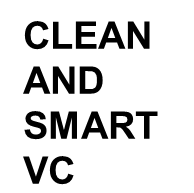Dear Founder #3: building strong and weather-proof companies
- By ssyc1
- January 15, 2018
- No Comments
 We invest to support companies building for the long term and so we are very interested in founders who want to build long-lasting and strong companies irrespective of the state of the “weather”.
We invest to support companies building for the long term and so we are very interested in founders who want to build long-lasting and strong companies irrespective of the state of the “weather”.
I think about this question often. My Operating Partners share their mistakes with me regularly. We see mistakes being made often – and resourceful founders doing their best to fix them too. We summarise these into 3 “operational rules” that are partly about mindsets that are useful to be mindful of (and are very much under the founder-CEO’s control):
1. Develop a “who-can-I-ask-for-help” mindset
It’s about asking what do I need to get there and “what don’t I know, and who can teach it to me?” and then finding an advisor, board member, executive, coach, advisor, customer, employee, or anyone else who has the knowledge you need. This sounds obvious and easy to do, but most founders shy away from it because it makes them feel insecure.
When you’ve been good at everything your whole life — and in fact part of the drive behind starting your own company means wanting to do things in your worldview — asking for help does not come naturally. But you must put your fears and ego aside if you hope to learn quickly. Learning as you go, at “normal” speed, is not enough.
One of the things I learned, when I was younger (but wished I had learned earlier) was that people who invest in you are often betting that if there’s something to be learned you’ll be motivated enough to learn it and solve the problem. Don’t be afraid to say “I don’t know but I’ll figure it out”. So, I always say, “leverage”! What resources can you leverage to “figure it out” faster than on your own?
We invest in “clean and smart” technologies – and it’s sometimes a surprise how willing people are to help you realise a cleaner and smarter world because they think that’s something valuable. So – leverage!
2. Build a real Board (process)
This doesn’t have to be a formal Board; what is required is that there is that one or two persons who ask you the tough questions regularly.
Your criteria should be people who really care about the company and want to help the CEO and company, have skills to offer, yet are 100% independent as well
Many people think of this as a necessary evil. In reality, your board is your last line of defense between you and self-delusion or bankruptcy. The bigger you get, the more likely that a weak board will let you cross those lines.
One of the best ways to learn fast is to put people who you can learn from on your board.
- The Board process forces the CEO and management to take a much-needed snapshot of the business and get real as to the status of the company.
- A good Board also help raise the bar.
- True, Board members by definition will never know a fraction of what you will, but they can give you good insights you were too occupied or too close to observe.
You want to survive the good as well as the bad times: you need to think about who you can rely on and for good advice when the bad times come which they always will. Ideally, this also helps you see or recognise the bad events quickly so you can react early.
3. Avoid drinking the kool-aid
The very “will to power” qualities that make successful founders — being obstinate, willing to defy the norms, believing the impossible, doing what no one could imagine being done, and trusting your vision over what already works for all of the incumbent “experts” — is what got you to success in the beginning. It is useful to be determined and stubborn: it’s probably how you got your company started in the first place, secured its first media coverage, and found yourself investors, excellent engineers, and so on.
So this is not to say you should stop trusting your instincts. In fact, just when most CEOs wonder about their instincts as they’re scaling is when they should trust them. But… you cannot build a weatherproof company if you don’t also learn to constantly gather challenges to your thinking, learn to listen and hear them, and then test those learnings out.
The companies we respect the most have got there by constantly challenging their own ideas and stress-testing them – whether it’s Apple or Amazon, Google or Facebook. It took building a lot of infrastructure and process while also carefully preserving the entrepreneurial spirit and mission that underpinned the company’s beginnings in the first place.
Sometimes, I call it an ability to “self-learn”. There is an interesting lesson from the success of NASA team on the ground in solving the crisis on the Apollo 13 rocket but not the team during the Columbia crisis in 2003: a major factor was a culture where “every piece of new information is evaluated and debated”.
The words of Eugene Kranz, the Appollo commander, is instructive:
Spaceflight will never tolerate carelessness, incapacity, and neglect. Somewhere, somehow, we screwed up. It could have been in design, build, or test. Whatever it was, we should have caught it. We were too gung ho about the schedule and we locked out all of the problems we saw each day in our work …… Not one of us stood up and said “Dammit, stop!’. We are the cause! We were not ready! We did not do our job … From this day forward, Flight Control will be known by two words: Tough and Competent. Tough means we are forever accountable for what we do or what we fail to do. We will never again compromise our responsibilities. Every time we walk into Mission Control we will know what we stand for … Competent means we will never take anything for granted.
Present successes can turn quickly, so can present failures – “luck” plays a role, as we discussed in a post last year. The value of “iterating, iterating and iterating” requires a desire to see and assess information and to see successes and failures of the present and the past to both be necessary steps that lead towards ultimate and long-term success.






Leave a Reply